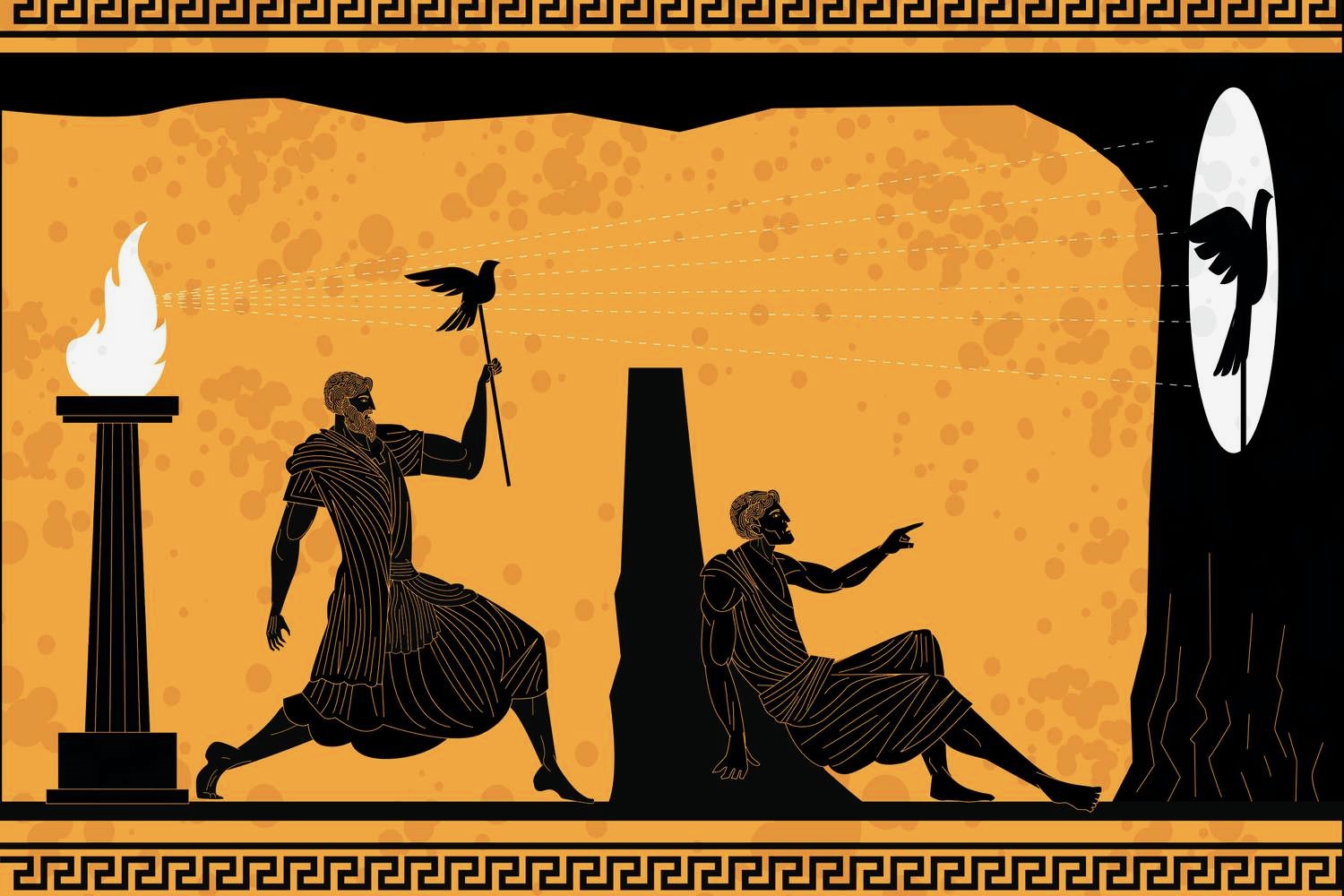Plato’s Allegory of the Cave, one of the most significant pieces of work in literary history [1], has had a major influence on me ever since I first studied it in my grade twelve philosophy class. My interpretation of the lessons from the Allegory of the Cave is summarized by the following statement.
Our perception of reality is based on both our sensations and our knowledge. Achieving a greater understanding of reality is often necessary to achieve greater happiness. However, we are naturally reluctant to change our perception of reality. Hence, we must constantly push ourselves in the pursuit of knowledge.
By no means is my interpretation of the Allegory of the Cave novel, as the work has been discussed by scholars for centuries (refer to the ‘References’ below). I am sharing my interpretation of the allegory, however, in the hope that the application of its lessons will be as helpful for others as it has been for me.
Below, I’ve included a short summary of the Allegory of the Cave, a note on my disagreements with the work and its interpretations, and my thoughts on how we can apply its lessons.
Summary
The Allegory of the Cave is a Socratic dialogue written by the ancient Greek philosopher Plato. In the Allegory of the Cave, Plato presents Socrates as describing a group of people – prisoners – who have lived in an underground cave all their lives. These prisoners have been shackled such that they can only look at a wall in front of them. Behind the prisoners, there is a fire and, in between the prisoners and the fire, runs a road. On the road, other people and objects pass, casting shadows on the wall and making noises.
Socrates imagines that the captives would believe that the shadows would be making the sounds they hear, because it is all they’ve ever known. To the prisoners, their reality consists solely of the shadows and accompanying sounds.
Then, Socrates tells of one prisoner being unshackled and released, who then turns to see the objects that cast the shadows as well as the fire behind them. It is imagined that the light would hurt the eyes of the newly freed prisoner, who, as a result, would want to retreat back to captivity. The former prisoner, fearful of the unknown, is then forced to leave the cave and is painfully blinded by the bright light of the sun.
Once the former prisoner's eyes adjust, a better understanding of the world is achieved. The former prisoner begins to enjoy new-found freedom and greater happiness and feels sorry for the remaining prisoners stuck in the cave. So, the former prisoner returns to cave to inform the remaining prisoners. Socrates argues, however, that the prisoners would refuse to believe their former peer, who would appear to be transformed into another shadow on the wall. In fact, the remaining prisoners would fear the fate of their former fellow prisoner and further resist efforts to be freed.
For further reference, I’ve linked an illustrative video here.
Disagreements
Before listing the positive lessons and applications from the Allegory of the Cave, I wanted to note my disagreements with certain elements of the story and its other interpretations.
- Elitism and rationalization of the maltreatment of others. Although I do not believe it was Plato’s intent, it is conceivable that the interpretation of the Allegory of the Cave’s moral could devolve into “don’t try and change an ignorant person’s mind” [4], or worse, “it’s okay to treat others poorly if they are ignorant”. Rather, I think one of the morals of the story is that we should strive to help teach others and be empathetic to the difficulty inherent in learning new concepts.
- Philosophers, or educators, are responsible to bring about enlightenment. Some interpretations consider the Allegory of the Cave to be an insight into Plato’s view of education: that all humans begin in a cave and philosophers are responsible for bringing them out of it [5]. I believe it to be self-evident, however, that we are all capable of freeing ourselves from the cave through education and the pursuit of knowledge.
Applications
The Allegory of the Cave taught me that I must constantly work to question my beliefs and push the boundaries of my knowledge. To continue the analogy, we are always in a cave of some kind; in other words, our perception and understanding of reality will never be perfect. I believe this lesson to be a helpful reminder in everyday life with practical applications as follows:
- In a discussion, try to interpret an issue from the other person’s point of view.
- When considering jobs or projects, prioritize the opportunity for learning over other factors.
- Strive to be engaged, as often as possible, in an educational course or program.
- Read extensively (over the last year, I have gotten into the habit of reading The Economist on a weekly basis).
Please let me know what the Allegory of the Cave means to you!
References
[1] https://www.masterclass.com/articles/allegory-of-the-cave-explainede
[2] https://en.wikipedia.org/wiki/Allegory_of_the_cave
[3] https://ethics.org.au/ethics-explainer-platos-cave/
[4] https://www.reddit.com/r/philosophy/comments/3ch01y/one_thing_people_always_get_wrong_about_platos
[5] https://medium.com/indian-thoughts/education-and-platos-allegory-of-the-cave-bf7471260c50


